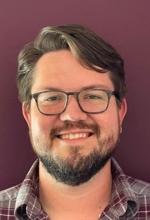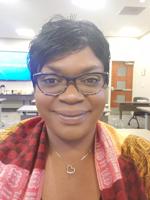Southside Virginia has long been recognized as one of the areas of highest drug addictions in the nation, and the isolation of the pandemic certainly hasn’t helped matters.
“It’s like when everything shut down, they lost their connections to things,” he said. “I can only assume they started using more often” once the pandemic hit and isolation began, “or maybe they weren’t using at all and relapsed.”
“I have the impression that it’s been harder for people” during the pandemic, said Jeremiah Grogg, a lead counselor at Spero Health in Martinsville. “There’s been a lot of isolation that’s been happening. We’re very social creatures as people, so isolation is really hard for us just in general.

“Some of the things that happen with the disease of addiction can be very isolating for people. It’s a double-whammy. It compounds upon itself. Addiction pushes people away, and they lose meaningful connections.
“It’s a really important task in addiction treatment, to help them rebuild and restore their relationships.”
The database “will equip first responders with pertinent records to find appropriate solutions for those suffering from a mental health crisis or emergency,” a press release from the MHC 911 Center states.
High rates
The city of Martinsville has the nation’s second-highest per-capita rate for the most opioid pain pills prescribed between 2006 and 2012, based on information in a database maintained by the federal Drug Enforcement Administration that was made public in 2019.
The area remained in the national spotlight for drug addictions with Beth Macy’s 2018 book “Dopesick,” which looked at the problem of opioid addiction, focusing on high-problem areas such as Henry County.
Throughout 2020, simplistic yard signs offering Suboxone and methadone for $1 per day were on display across Martinsville and Henry County, despite the fact that the Federal Drug Administration has strict laws prohibiting such drug promotions. Those are drugs used in Medication Assisted Therapy to help people recover from addictions.
Treatments
Grogg has been with Spero’s Martinsville clinic since it opened in August 2020. That clinic is fully dedicated to people with “substance abuse disorder,” he said. Spero has dozens of locations across the midwest, but its only two clinics in Virginia are in Martinsville and Petersburg.
“We try to do the wraparound care for our patients: look at their physical health, more general mental health as well as their substance abuse issues,” he said. “Anxiety, depression and anger management” often go hand-in-hand with substance abuse.
The main source of addictions in people he has seen are opioids, which include pain control medications and heroin, Grogg said. Also, “we see a lot of stimulant abuse,” from drugs such as cocaine.
“Spero provides medication-assisted treatment here, called ‘MAT,’” Grogg said. “We feel strongly it’s effective, and the research is very consistent. It’s the gold standard in helping people reach recovery goals.” It is used in conjunction with mental health counseling and group therapy for success.
Overcoming an addiction takes time, he said, and a variety of methods. “It could be as long as 5 to 10 years. We might just be one step on their journey,” Grogg said.

Rasheeda Crowder is the interim director of Addiction Recovery Treatment and Services in Danville and the director of Epic in Martinsville.
“We have seen an uptick, definitely, during the pandemic,” she said. Drug addiction “can be a symptom of other mental health issues.”
Because people couldn’t “blow steam” through traditional means such as going out or seeing friends, she said, many turned to substance abuse instead.
“We saw new people starting habits.” That included drinking alcohol more, and earlier in the day, than before: “That five o’clock time comes earlier and earlier. Next thing you know, you’re drinking at noon.”
When the structure of going to work and school is removed, “they’re left to their own devices. If they don’t have good coping skills, this is what happened across the state.”
Byrd said 20 men, mostly from Pittsylvania, Henry and Patrick counties and the cities of Martinsville and Stuart, live at the Hope Center for a year during their time of recovery.
“We’ve definitely seen changes” during the pandemic, he said. “We’re very dependent upon counseling. When COVID started, our certified counselors had to do all of their counseling over Zoom,” and the residents missed seeing them in person.
It also was difficult for the residents in recovery not to be able to see their families or go to church, he said.
Byrd said people in general should do “whatever we could do to get past this pandemic, not only for the safety of people who may battle the coronavirus but also the mental health that goes along with it, suicide – people need connection. The opposite of addiction is not sobriety. The opposite of addiction is connection.”